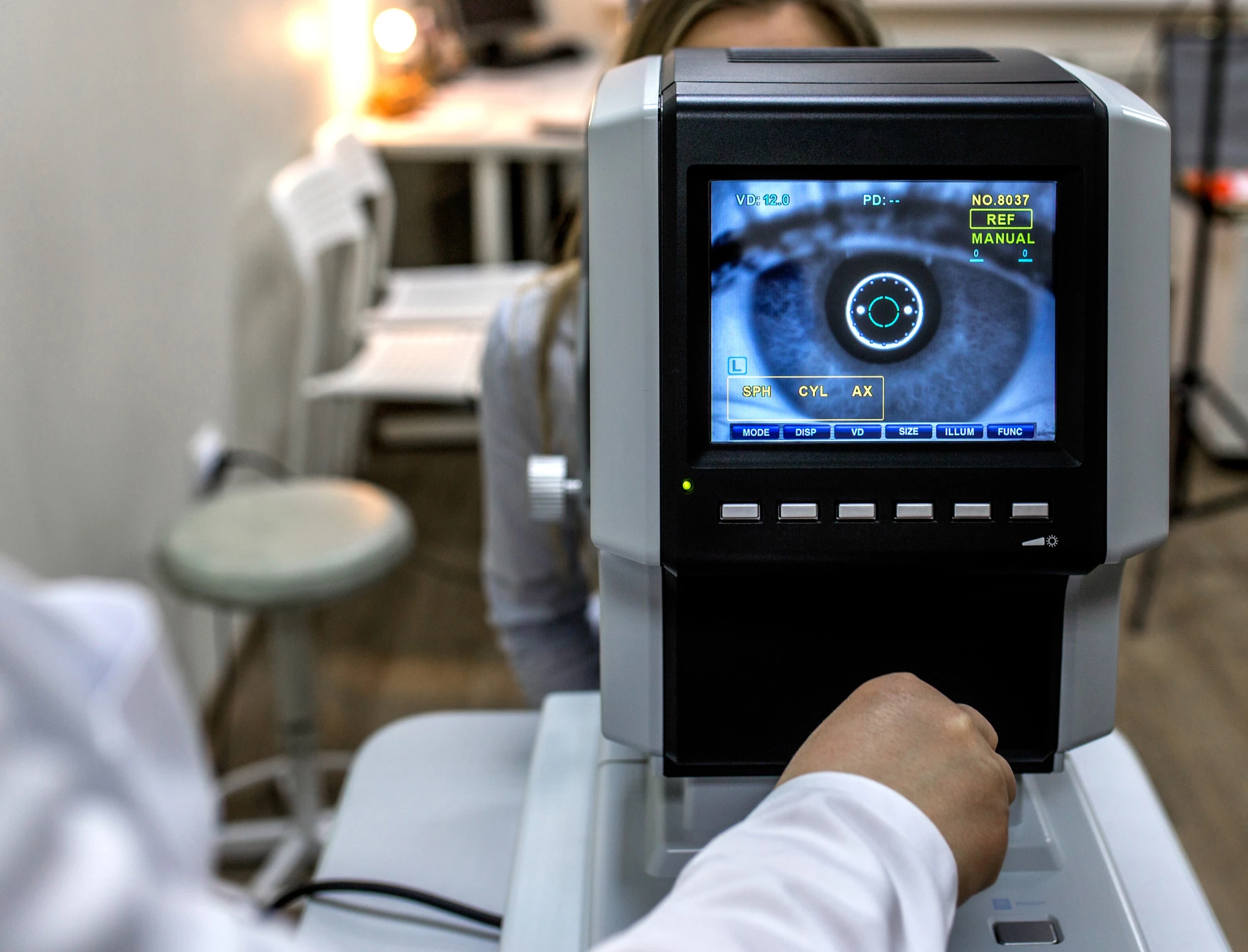
Partner Article
How a simple eye test could potentially save your life
“The thousands of people currently missing regular eye examinations could be a ticking timebomb when it comes to not only ensuring better eye health in the UK but for spotting more serious issues relating to our overall health.” Dr Andy Hepworth, Essilor.co.uk
Eye tests don’t just tell you if you need glasses and a change of corrective lens prescription, or even that you have ‘healthy eyes’. Eye examinations are an important health check for overall wellbeing – and a potential way to identify an underlying life-threatening issue such as a brain tumour or heart disease.
Yet according to experts at Essilor.co.uk, its network of opticians is still reporting worryingly high numbers of people missing regular eye examinations. These findings are echoed by a recent YouGov poll that reported that a third of UK adults have not had an eye test in more than two years, 50 per cent of UK adults haven’t attempted to book a routine check-up with an optician for well over a year and 69% haven’t attempted to book specialist eye care at a hospital or with an ophthalmologist.
Dr Andy Hepworth from optical lens specialists Essilor.co.uk says, “Social restrictions, increased time spent on screens and harder to access healthcare could be leading to a ticking timebomb when it comes to not only ensuring better eye health in the UK but for spotting more serious issues relating to our overall health. We’re urging everyone to get their eyes checked regularly by a professional, at least within the recommended timeframe of every two years – minimum, even if your vision seems fine.”
TV Celebrity Sue Perkins knows only too well the dangers of not getting regular eye tests. She recently revealed her father was diagnosed with an inoperable brain tumour following a visit to the opticians. He passed away six months later, leaving the former Great British Bake-Off presenter determined to raise awareness of the importance of optic health.
Early warnings and 16 health conditions an eye exam can identify
Dr Andy Hepworth says “Regular eye appointments are not just about keeping our eyesight in check. A close inspection of the lens, retina and optic nerve can reveal a host of disorders, high blood pressure and diabetes among them, even if the patient feels fine and shows no other symptoms.
“There are many surprising health problems that an eye examination can catch – and like all conditions catching them early can make all the difference.
The following 16 conditions are found to be identified from an eye test:
• High Cholesterol
• Brain Tumours
• Aneurysms
• Cancers of blood, tissue or skin
• Giant cell arteritis
• Lupus
• Lyme disease
• Medication toxicities
• Multiple sclerosis
• Rheumatoid arthritis
• Sexually transmitted diseases
• Sickle cell disease
• Stroke
• Thyroid disease
• Vascular disease
• Vitamin A deficiency
“Eyes are like a magnifying glass into the inner workings of our blood vessels, nerves and connective tissues throughout the body.
“For example, tumours on the brain can cause increased pressure that results in swelling near the back of the eyes – meaning that an optometrist can see these abnormalities. Changes in pupil size or double vision are also potential signs of a brain tumour. Other cancers that might affect the eyelids and outer surfaces of the eye can also be found during a detailed eye exam.
“A common condition affecting eye tissue and thus identified with an eye exam is diabetes. Tiny blood vessels in the retina that leak yellow fluid or blood can be a sign of diabetic retinopathy. Diabetic retinopathy happens when the blood vessels in the eye are damaged by high blood glucose levels, which is a serious condition if left undiagnosed. Early signs are usually picked up during diabetic eye screening – this is when photographs of your eyes are taken to check for damage.
“A very slight bleed in the eye, that presents itself as a tiny broken blood vessel in the white of the eye, can be associated with high blood pressure. And eye exams can detect a number of cardiovascular conditions, including clogged arteries or decreased blood flow due to heart disease. These conditions can leave plaque deposits or show as damage within the eye area to indicate a more significant health issue.”
“As well as advising on specialist lenses to help to correct vision, opticians have the technology to take an in-depth look at your eye and beyond to your body’s inner workings and provide expert advice. Maintaining regular eye examinations with your local optician is not only the best and most straightforward way to look after your eye health and vision, it may even safe your life,” Dr Hepworth concludes.
This was posted in Bdaily's Members' News section by Kirsty Hunt .








 Raising the bar to boost North East growth
Raising the bar to boost North East growth
 Navigating the messy middle of business growth
Navigating the messy middle of business growth
 We must make it easier to hire young people
We must make it easier to hire young people
 Why community-based care is key to NHS' future
Why community-based care is key to NHS' future
 Culture, confidence and creativity in the North East
Culture, confidence and creativity in the North East
 Putting in the groundwork to boost skills
Putting in the groundwork to boost skills
 £100,000 milestone drives forward STEM work
£100,000 milestone drives forward STEM work
 Restoring confidence for the economic road ahead
Restoring confidence for the economic road ahead
 Ready to scale? Buy-and-build offers opportunity
Ready to scale? Buy-and-build offers opportunity
 When will our regional economy grow?
When will our regional economy grow?
 Creating a thriving North East construction sector
Creating a thriving North East construction sector
 Why investors are still backing the North East
Why investors are still backing the North East